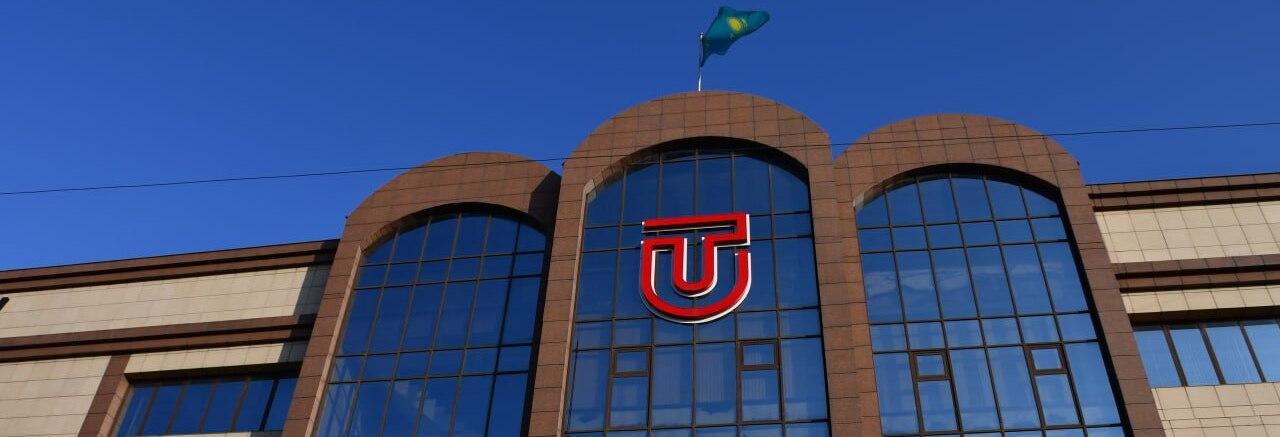
Sustainable Development at Tashenev University
Sustainable Development of Tashenev University
Sustainable development is a guiding principle that ensures the needs of the present are met without compromising the ability of future generations to meet their own. It emphasizes a balance between economic growth, social equity, and environmental protection, while advocating for the preservation of natural resources and the fair distribution of benefits across society.
In 2015, the United Nations adopted the 17 Sustainable Development Goals (SDGs) as part of the 2030 Agenda, which serves as a global action plan for achieving sustainable progress. These goals address a wide range of global priorities, including the elimination of poverty and hunger, ensuring access to quality education and clean water, promoting gender equality, combating climate change, and strengthening peace and justice.
At the UN Summit on Sustainable Development, President of the Republic of Kazakhstan Kassym-Jomart Tokayev highlighted the importance of the SDGs, calling them a critical opportunity for our generation to shape a better future. For Kazakhstan, he noted, the achievement of these goals is a national priority, integrated into strategic programmes and development policies.
Tashenev University’s Commitment to Sustainability
Tashenev University is deeply committed to advancing the principles of sustainable development through its educational, research, and community engagement initiatives. With a strong tradition of academic excellence and innovation, the University serves as a vital platform for preparing future leaders who are equipped to drive sustainable change in their communities and professions.
As part of its contribution to the SDGs, Tashenev University implements various social, economic, and environmental programmes that support sustainable outcomes. The University provides inclusive and equitable access to education, ensuring that students from diverse and underrepresented backgrounds—including those from rural regions—can benefit from high-quality academic opportunities.
In alignment with the global sustainability agenda, the University has launched a strategic initiative to develop a Green Campus, promoting environmentally responsible practices across all areas of campus life. This includes:
- Energy and water conservation
- Waste sorting and recycling programmes
- Awareness campaigns on ecological responsibility
- Support for student research focused on environmental issues
The Green Campus serves not only as an operational strategy, but also as an educational model, engaging students, faculty, and staff in sustainable behaviours and fostering a culture of environmental stewardship.
Through these efforts, Tashenev University demonstrates its unwavering dedication to building a more sustainable, equitable, and resilient future—both locally and globally. As we move forward, the University continues to align its mission with the broader vision of the UN 2030 Agenda, reinforcing its role as a transformative force in society.
Sustainable development of the university

Goal 1: No poverty
What is the goal?
Eradicating poverty in all its forms everywhere by 2030..

Goal 2: Zero hunger
What is the goal?Eradicate hunger, ensure food security and improved nutrition, and promote sustainable agriculture.

Goal 3: Good health and well-being
What is the goal?To provide healthy lifestyles and promote wellbeing for people of all ages.

Goal 4. Quality education
What is the goal?Ensure inclusive and quality education for all and promote lifelong learning

Goal 5: Gender equality
What is the goal?Ensure gender equality and empower all women and girls.

Goal 6: Clean water and sanitation
What is the goal?Ensure access to safe water and sanitation for all

Goal 7: Affordable and clean energy
What is the goal?To ensure universal access to affordable, reliable, sustainable and modern energy for all.

Goal 8: Decent work and economic growth
What is the goal?Promote inclusive and sustainable economic growth, employment and decent work for all

Goal 9: Industry, innovation and infrastructure
What is the goal?Build resilient infrastructure and promote inclusive and sustainable industrialisation and innovation.

Goal 10: Reduce inequalities
What is the goal?Reduce inequalities within and between countries

Goal 11: Sustainable cities and communities
What is the goal?Make cities open, safe, resilient and environmentally sustainable

Goal 12: Responsible consumption and production
What is the goal?Ensure a shift towards sustainable consumption and production patterns

Goal 13: Climate action
What is the goal?Take urgent action to combat climate change and its effects

Goal 14: Life below water
What is the goal?Conserve and sustainably use the oceans, seas and marine resources

Goal 15: Life on land
What is the goal?Sustainable forest management, combating desertification, halting and reversing land degradation and halting biodiversity loss

Goal 16: Peace, Justice and Strong Institutions
What is the goal?To promote peaceful and open societies for sustainable development, ensure access to justice for all and build effective, accountable and participatory institutions at all levels.

Goal 17: Partnerships for the Goals
What is the goal?Revitalise global partnership mechanisms for sustainable development